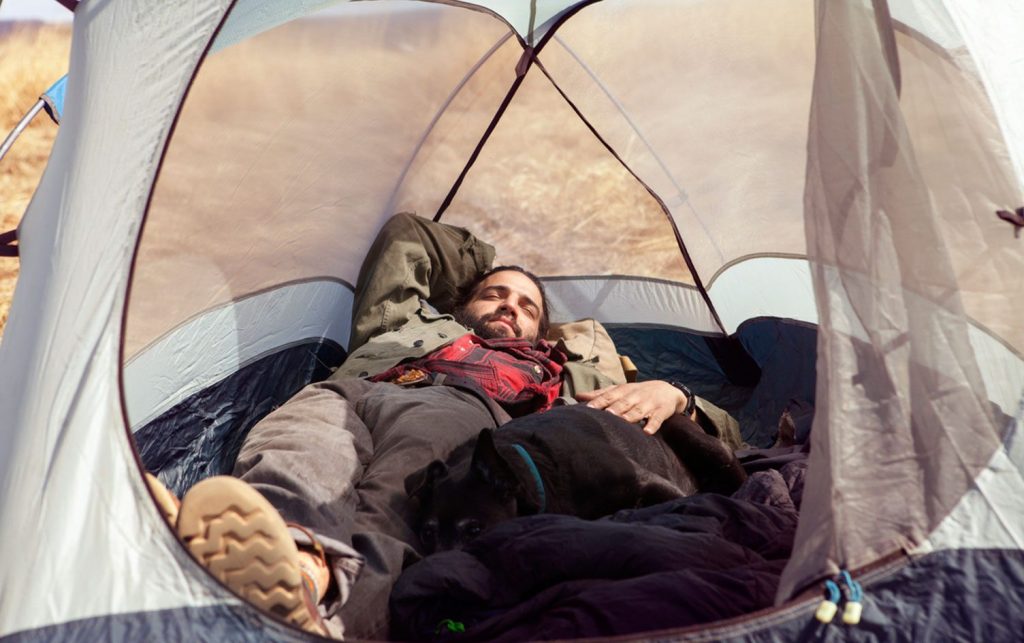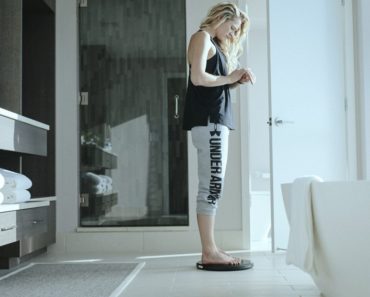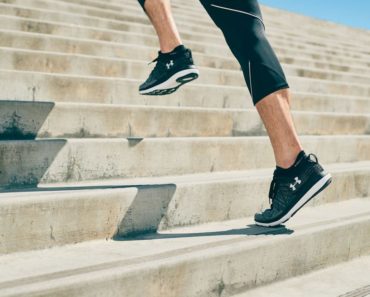
Everything from jet lag to social media to an eventful weekend full of late nights (otherwise known as social jet lag) can wreak havoc on your circadian rhythm — that natural schedule your body keeps when it comes to sleep. Once your schedule is off, it can seem next to impossible to get it back on track. But new research out of University of Colorado-Boulder found all it takes to get your body back in sync with a more natural sleep schedule is a weekend of camping.
ONE WEEKEND, NATURAL LIGHT ONLY
To find out how natural light affects our circadian clocks (the natural timing mechanism we all have to control our circadian rhythms), researchers at UC-Boulder’s Sleep and Chronobiology Lab, led by Dr. Ken Wright, took participants out into the woods for a weekend of camping sans all electrical lighting. “There were no electronic devices, no flashlights. Just the sun and campfire,” explains Ellen Stothard, a recent graduate of UC-Boulder who co-authored the study.
This is how it all works: “When you’re exposed to light, both natural and artificial, it affects your circadian clock through the secretion of melatonin,” the chemical that triggers and regulates our sleep patterns, Stothard notes. “What we found is that the exposure to natural light changes the timing of the secretion of melatonin,” she explains.
A weekend of camping, they found, shifts the timing of our circadian clock to align more closely with sunrise and sunset in the summer when the days are longer and nights are shorter. Even in the winter, with shorter daylight hours, the shift still occurred, just with slightly less exact alignment. “For most people, this means that their circadian clocks ‘advance,’” says Stothard. “Meaning that, for most people, your body will naturally want to go to sleep and wake up earlier,” she explains.
“People can certainly have ‘improper’ relationships with their circadian clocks,” she explains. “For some people it’s genetic, for some people it’s a hard-to-break habit of staying up way too late, resulting in trouble waking up early for school or work,” explains Stothard. “Advancing your circadian clock just makes all of this easier.”
A sleep adjustment strategy that includes s’mores might seem too good to be true. But beyond providing an easy and fun way to make mornings more bearable, Stothard’s study opens the door for a deeper conversation on sleep-related health.
“While this isn’t what we specifically studied, it’s possible that continuously trying to keep a more natural circadian timing could have a positive effect on your health. There’s plenty of research that suggests that circadian misalignment can have negative effects on metabolic health,” Stothard notes.
And it’s true: 2015 review article points out that circadian misalignment can lead to “negative outcomes” that range from appetite, metabolism and mood, to disease and sleep disorders.
READ MORE > THIS IS YOUR BODY ON SLEEP DEPRIVATION [INFOGRAPHIC]
SOLUTIONS BEYOND CAMPING
While we can’t just pick up and go camping every weekend, Stothard explains that drastic measures like electronic-less camping aren’t even necessary if we put a bit of effort into our circadian alignment every day.
“If you can’t go camping, we suggest that you get outside in the morning, in the earlier half of the day, as much as you can. Have your breakfast or coffee outside or sit near a window. Do everything you can to get light exposure. Try biking to work or going for a walk,” she notes.
When it comes to the end of the day, Stothard sings the praises of staples we’ve all heard before: “Turn the TV off and reduce ambient lighting at night. Use your phone less and try to not use it at all two hours before bed,” she concludes.
The post Research Says: Go Camping for Better Sleep appeared first on Under Armour.
(via MyFitnessPal Blog)






